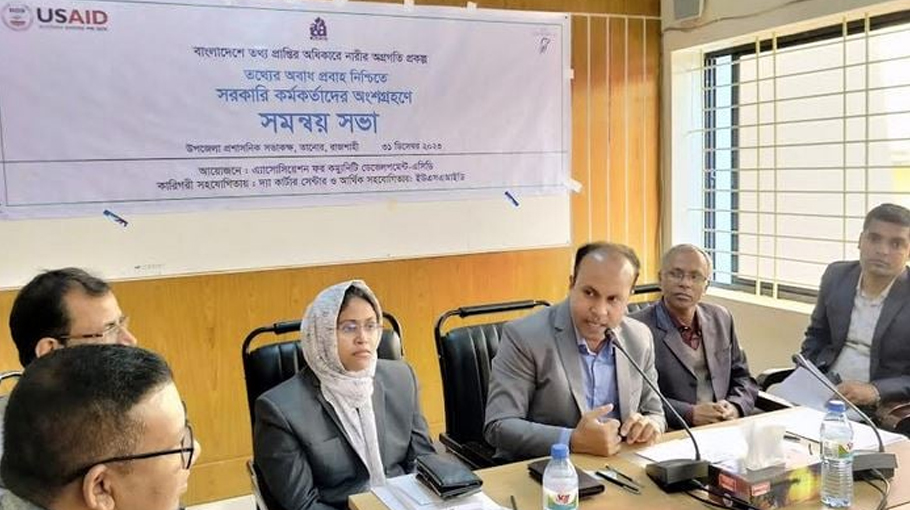RTI role vital for changing lot of grassroots women

The Right to Information (RTI) has a crucial role in improving living and livelihood standard of the grassroots marginalized women.
The RTI is also helpful in ensuring climate change adaptation, justice and social accountability. So, all the government, non-government and other stakeholders, particularly the local government institutions, should come forward and work together in this field.
Government officials and development activists unanimously observed this while addressing a coordination meeting on the issue with the upazila level officials at Tanore Upazila Parishad conference hall in the district on Sunday.
On behalf of the “Advancing Women's Right of Access to Information in Bangladesh” project, the Association for Community Development (ACD) organized the meeting supported by the Carter Centre.
With Upazila Nirbahi Officer Billal Hossain in the chair, the meeting was addressed by Assistant Commissioner (Land) Abida Shifat, Health and Family Planning Officer Dr Barnabas Hasdak, Agriculture Officer Saifullah Ahmed, Livestock Officer Dr Wazed Ali and Engineer Saidur Rahman.ACD Project Coordinator Subrata Kumar Paul illustrated the aims, objectives and implementation strategy of the project.
The meeting was told that the project is being implemented in Ward Number 5 and 6 of Rajshahi City Corporation (RCC) and Gogram and Matikata Unions of Godagari upazila, Chanduria and Saranjai Unions of Tanore upazila and Damkura and Haripur Unions of Rajshahi district.
The project is intended to create an congenial environment where women, especially Dalit and Marginalized are able to enjoy Right to Information for protecting their fundamental Rights.
Billal Hossain said the present government under the prudent and visionary leadership of Prime Minister Sheikh Hasina has adopted diversified steps to attain the goals within stipulated time.
"Implementation of RTI act has become crucial for establishing good governance in the society and enhancing transparency and accountability in all tiers of public services," he added.




